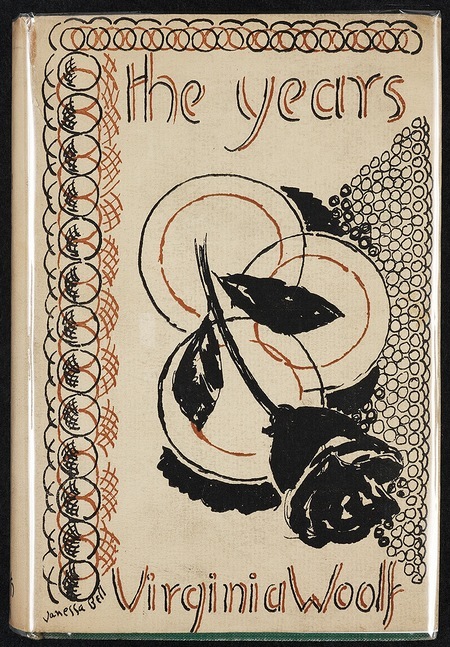“This crowded confusing year”
More rain in 1938 meant a slow, steady recovery for Caroline’s land and the region as a whole with crops growing again. But she still describes winter and spring as “a blur of almost continuous dust” when she writes to Rose at the end of the year.
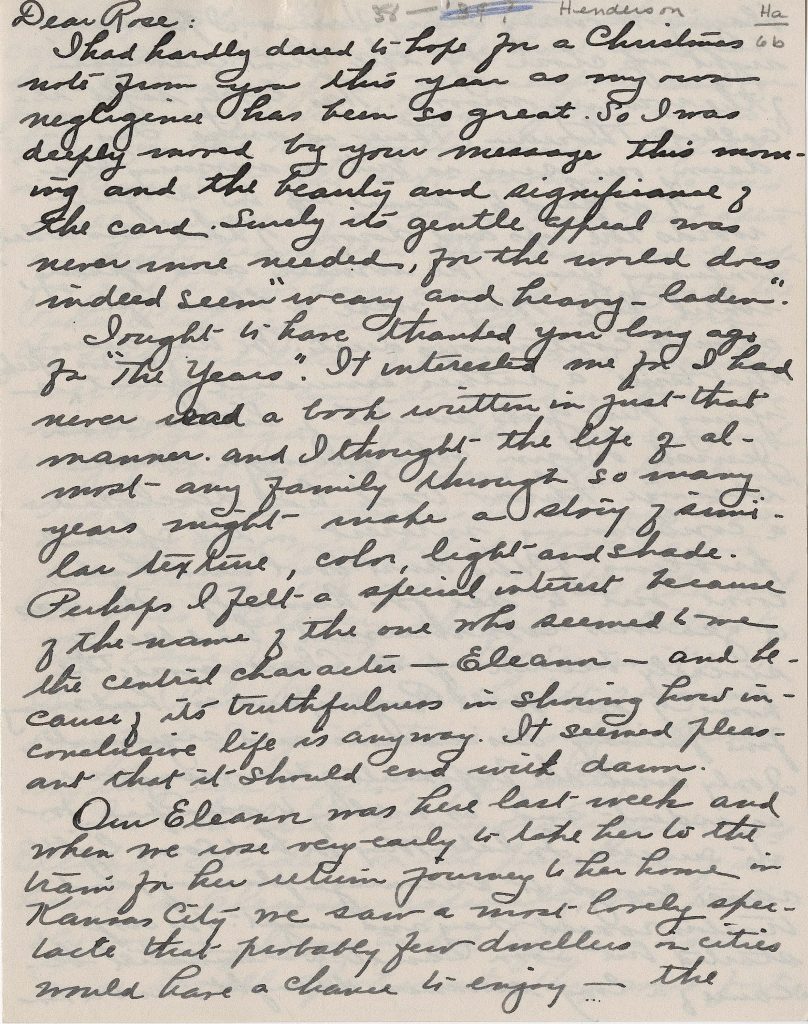
Caroline also mentions her enjoyment reading Virginia Woolf’s The Years, first published in 1937. “Perhaps I felt a special interest because of the name of the one who seemed to me the central character–Eleanor–and because of its truthfulness in showing how inconculsive life is anyway.” Caroline’s own daughter Eleanor was grown by this time, and is proudly mentioned in this letter as she has completed her medical training, married, and now bought a house of her own.
“Be forbearing enough to lay part of the blame upon our restless cows”
Written in part while waiting for one of her heifers to give birth, this letter from Caroline describes daily life on the farm with her husband and her continued anxieties. Although weather conditions have become more favorable to planting, “it will take years of favorable seasons and persistent effort to effect any real recovery.” She adds:
We have both worn down fast during the years of extreme desolation since 1931. Every small accomplishment now seems to demand a greater output of energy and resolution than in the years that are gone.
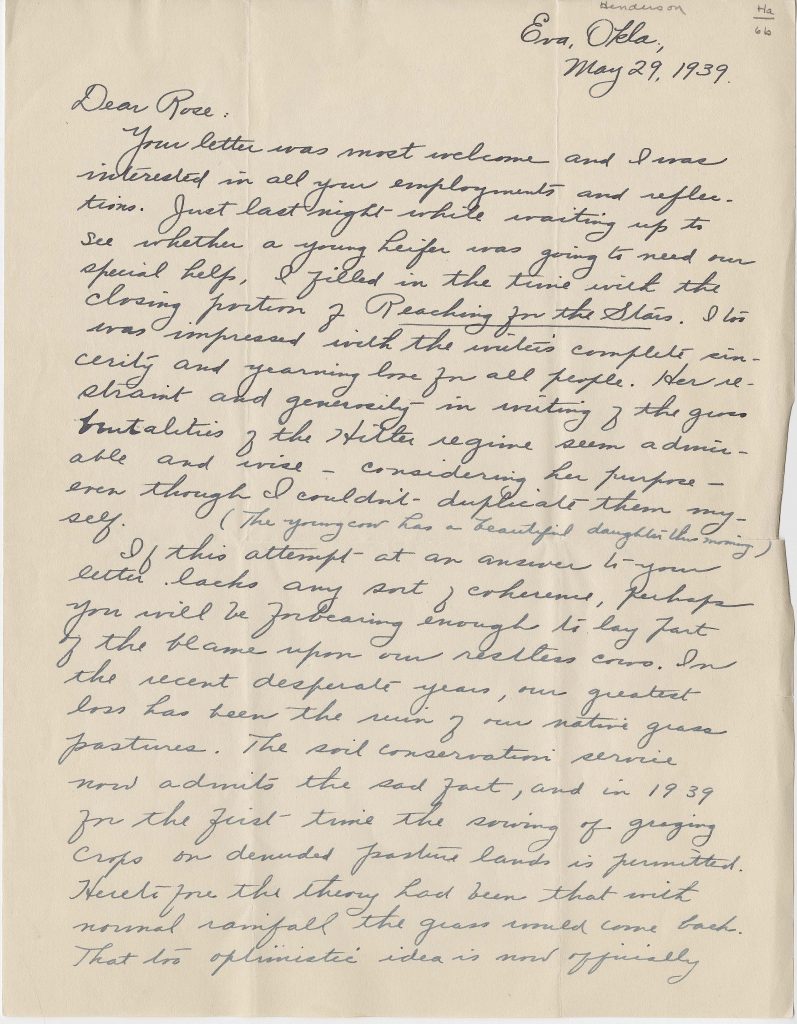
On a happier note, Caroline is pleased that her classmate Rose will be attending their Mount Holyoke class reunion although she herself will not be able to:
“It will be a happy experience to mingle again with those who in my mind at least, are endowed with the charm of perennial youth. Pictures or hints of change make no difference. I think of all of you just as you were ‘when you and I were young.'”
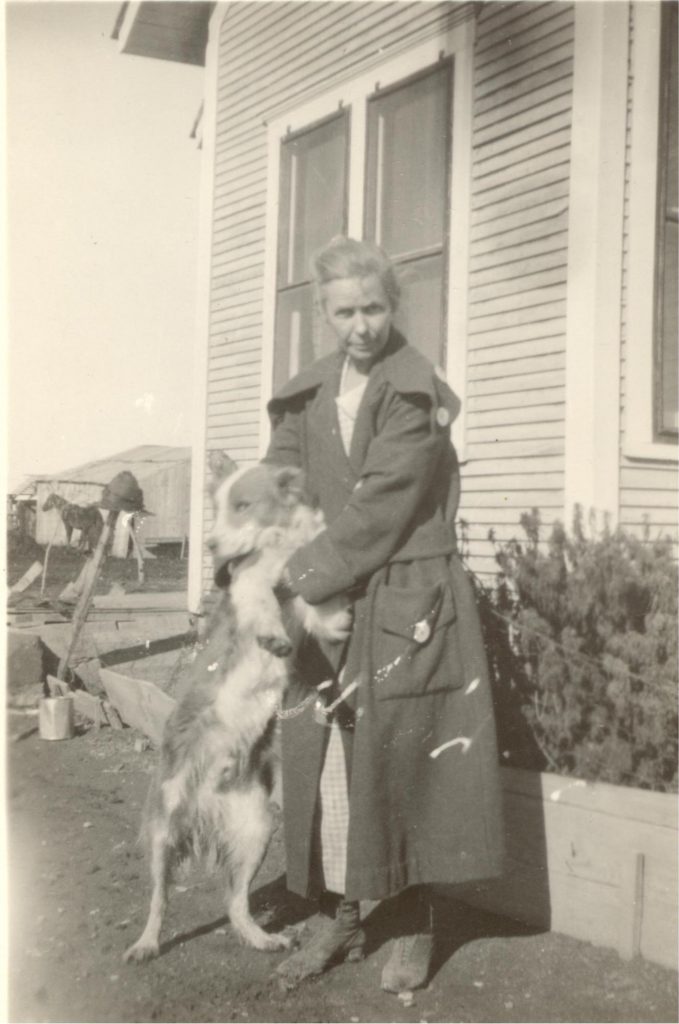
“Source material to social historians”
Rose Alden donated Caroline Henderson’s letters to Mount Holyoke College in 1957, but she evidently proposed the idea to Caroline much earlier, as it is discussed in the below excerpted letter from 1945.
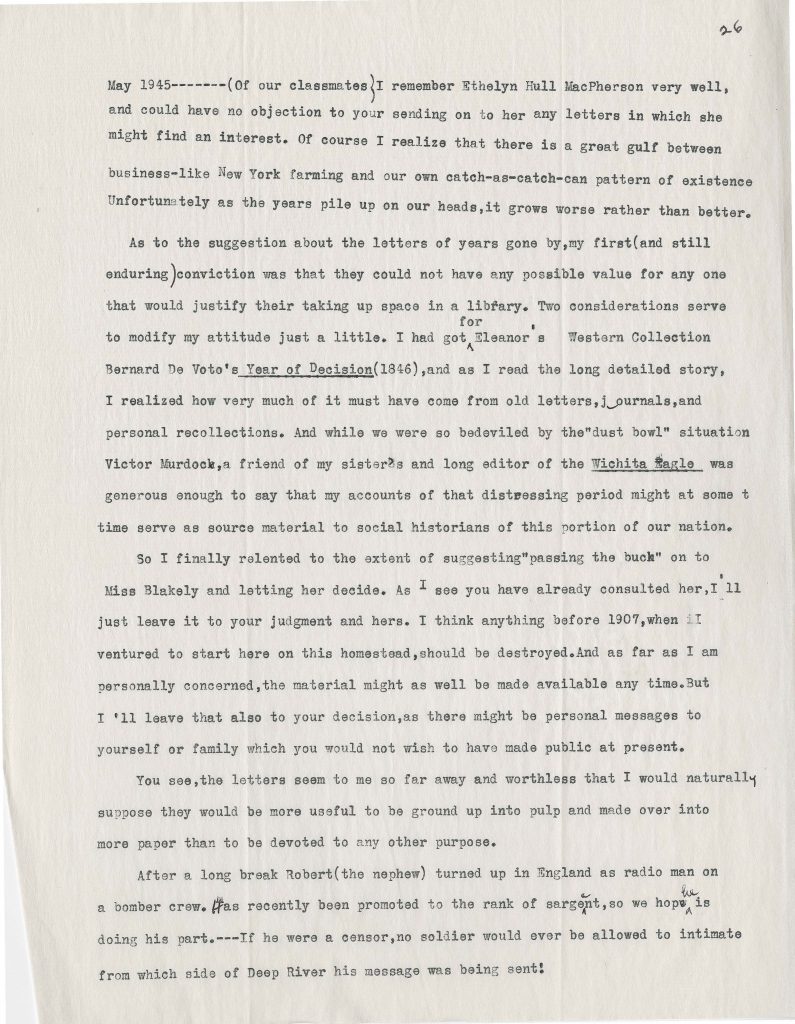
Although Caroline modestly suggests that she initially thought her letters “could not have any possible value for any one,” she does go on to suggest that others have said, “[M]y accounts of that distressing period might at some time serve as source material to social historians of this portion of our nation. … And as far as I am personally concerned, the material might as well be made available any time.”
But Caroline has more pressing concerns in 1945 than the disposition of her letters. World War II is raging; a nephew is in England “on a bomber crew”; and President Franklin D. Roosevelt has very recently died (“It is hard for us to think that his work was done”). Closer to home, the Hendersons may finally have access to indoor plumbing, if only they can find someone to help them install the materials:
“We have at last assembled most of the materials for piping water into the house with a [illegible] in the kitchen and indoor toilet in the bathroom. But we need a Superman to do the work.”
